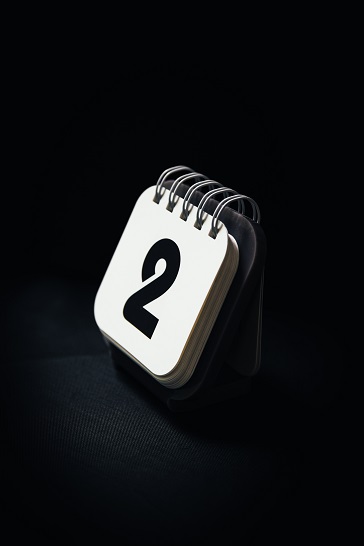
The Plain Language Act is the start of a new era | Photo by DaMoJo on excio.io
Lynda Harris, chief executive of Write Limited and founder of the Plain Language Awards, gave this speech at the online Awards ceremony on 27 October 2022.
Kia ora koutou, welcome plain language friends
Who would have thought that we’d be not only celebrating finalists and winners today, but the birth of a Plain Language Act as well. It feels like a new era. It’s been thrilling to receive so many well wishes from plain language advocates around the world … these include people in government, in healthcare, in the legal and financial sectors, all of whom see New Zealand’s legislation as a model for others to follow.
Unfortunately, those who opposed the bill called it a ‘stupid piece of legislation that doesn’t actually fix anything, And there’s absolutely no evidence that there’s actually a problem.’
There is evidence. Plenty of it.
And because of that, I believe this is a historic moment with so much potential for good. Let me show you why.
First let’s start with the many reasons as to ‘why plain language matters to you and me’. The reasons are the things we talk about often: transparency, access to justice and to the rights we enjoy as people who live here, efficiency, trust, fairness, and many more foundational concepts that we believe make a healthy, happy society.
We don’t tend to notice when these important expectations play out as they should. But we do take notice when they don’t. We quickly tend toward frustration, indignation, perhaps even anger. We might even give up.
The members of the public who nominate documents and websites for the Brainstrain award certainly feel those things. Thinking back over nominations for that dubious award I can recall:
- a frazzled business owner who was deeply frustrated by a COVID-19 leave application form
- a passenger who described their search for information on an airline’s website ‘as going around in circles’
- someone reading a council letter who said ‘I felt a bit ill when I tried to read this impenetrable letter’
- a director trying to update company details on what he called ‘this dreaded website, whose interface is user-unfriendly to an unusual degree’
- a deeply frustrated parent trying to enrol their children in a rural primary school
- a person with a masters degree who angrily said they couldn’t understand a letter from their city council
- a frustrated customer of a major bank who described a letter as unintelligible
- an elderly woman who couldn’t understand an important letter from the hospital
- a student who couldn’t navigate a form for a badly needed loan.
Those who nominated these documents are everyday people, like you and me … consumers, parents, small business owners, ratepayers, travellers, students, patients, and individuals simply trying to get our lives in order. So that’s evidence at a personal level.
But there’s more.
A second set of evidence of the need for plain language is found in the many submissions on the Bill. They came from groups and individuals from every walk of life, some already disadvantaged in one way or another. But the story was always the same … hurt, harm, frustration, barriers, all caused by unclear information. I wish I had time to share some of them with you.
And now let’s look at a third set of evidence. I’m talking about your entries, that came from across the public and private sectors on a vast array of topics, written for audiences representing every aspect of New Zealand society. Every one of you wrote, or rewrote those documents, because you saw evidence that something wasn’t working, or you understood the consequences of not communicating well, and you did something about it. And you did it for others, not for you.
Which brings me back to my comment that the Act has tremendous potential for good, and particularly so through you, who are already plain language advocates.
I see the Act as a giant OPPORTUNITY for all, in neon capital letters. And I suggest that that we can do two things — at least — to make the most of it.
The first is to:
Speak up: in your workplace, step into your reader’s shoes, notice more, find the stories that need to be told. In your private life, be an aware consumer, speak up when information isn’t plain, not only for yourself, but for those who feel the fault in comprehension is theirs, when we know that it’s not.
And the second is to:
User-test: Be an agent for change by getting proof of what’s not working. You won’t know what people understand or don’t understand from your messages if you don’t ask them. And you won’t know their emotional reaction either. You’ll be amazed at what people tell you if they are given a chance.
I recall some user-testing we did for a law firm years ago. The senior team didn’t believe a communication problem existed because no one complained. The frank and somewhat shocking feedback from the user-test group led the team to humbly conclude ‘silence doesn’t mean satisfaction’.
And so to end, may I suggest that you, who know the power of plain language, use this new Act as the wind beneath your wings. Allow it to be a triumph for democracy, and a catalyst to achieve all those things we mentioned at the start — equity, inclusion, transparency, and above all, clarity in the documents that we all need to live our lives well.
And congratulations to all our winners, finalists, and entrants celebrated here today.
Lynda Harris October 27th, 2022
Posted In: 2022 Plain Language Awards, 2022 Plain Language Awards ceremony, Story theme
Tags: advocate, Brainstrain, clear communication, People's Choice, plain language, Plain Language Act, Social good

Good, better, best: it's over to the judges to decide | Photo by Canstock
Thanks to all who entered this year’s Awards! After a flurry of last-minute entries, we have handed everything over to our intrepid judging team. All 36 of them!
This year a third of the judges are from New Zealand and the rest are from the US, UK, Australia, and Europe. All are accomplished plain language experts and strong advocates for Ernest Gowers’ advice: ‘Be short, be simple, be human’.
How do our expert independent judges pick their winners? It’s a big job so we thought you’d like to know a bit more about it.
First up, shortlisting
First, our judges read over each entry, carefully checking against the plain language criteria. Then they vote on their shortlist. This all happens independently in the Submittable system, which allows ‘thumbs-up, thumbs-down’ voting.
Next, reviewing
Next, judges do a detailed review of all entries, writing comments for each of the assessment criteria. Each panel works hard to make sure feedback is balanced, fair, and helpful. The goal at this stage is to recognise and affirm great writing and to help entrants do even better by making suggestions and giving examples for improvement.
We know that entrants really value the expert feedback. For some, it’s the best aspect of entering! Submittable calculates scores for each of the criteria and averages them across the judging panel to help the panel agree on a few contenders for the category awards.
Last, picking the finalists and winners
Now the judges deliberate as a team to pick their finalists and winners — quite a logistics exercise with judges living all over the globe! The deliberation stage can involve lots of lively debate, especially when many entries are of a very high standard!
When judges need to choose between two excellent entries, it usually comes down to impact. Entries where the work has made the greatest positive impact will usually triumph.
When all is agreed, lead judges review the written comments for all shortlisted entries to make extra sure that the comments are clear and helpful.
So if you entered this year, good luck! Regardless of the outcome, you’ve done a good thing and your users are thanking you! (A trophy is good too of course!)
How the judging process works
Judges for the 2022 Plain Language Awards
Lynda Harris August 16th, 2022
Posted In: 2022 Plain Language Awards, Judges, Shortlists
Tags: clear communication, judges, plain language, Plain Language Awards

You’ve now got till 5pm on Thursday, 4 August to enter the Plain Language Awards | Photo by Makarios Tang on Unsplash
Did you miss the deadline but still have something to enter? We’re giving you one last chance!
We’re extending the closing date for entries so you have little extra time to enter the Plain Language Awards.
Entries for the 2022 Plain Language Awards will now close at 5pm on Thursday, 4 August.
Nominate the good and the bad for the People’s Choice
Make a difference! Dob in a bad document, or praise an easy-to-read one! The more the public speak up and demand plain language, the easier it is for us all.
Power to the people — vote for plain!
Have you read something that strained your brain? Nominate it!
Get involved with the People’s Choice
It only takes a sentence!
If you’re short on time, enter a few beautifully transformed sentences for the Best Plain Language Sentence Transformation award.
Well-written sentences create a fine reading experience
Enter your transformed sentences by 4 August
Is your website based on plain language principles?
The Best Plain Language Website category recognises the best examples of websites that illustrate the principles of plain language. The judges are looking for highly usable, reader-focused website or intranet content. Public and private sector organisations can enter.
Meet the 2021 public sector winner, Ministry of Social Development
Meet the 2018 private sector winner, Xero
Meet the 2018 public sector winner, Auckland Council
Enter the Best Plain Language Website by 4 August
Get the recognition you deserve for your clear communications
The Plain Language Awards are one of New Zealand’s leading industry awards. Imagine how good you and your team would feel if you became a finalist … or even a winner?!
Find out more about our Awards categories
Get some inspiration from our past winners

Nicola Welby August 3rd, 2022
Posted In: 2022 Plain Language Awards, Best Plain English Sentence, Best Plain Language Sentence Transformation, Communications, Industry awards, People's Choice, People's Choice awards

You’ve now got till 5pm on Tuesday, 2 August to enter the Plain Language Awards | Photo by charlesdeluvio on Unsplash
We know what it’s like to be busy, and how difficult it can be to meet deadlines when the pressure’s on. That’s why we’re extending the closing date for entries so you have little extra time to enter the Plain Language Awards.
Entries for the 2022 Plain Language Awards will now close at 5pm on Tuesday, 2 August.
Get the recognition you deserve for your clear communications
The Plain Language Awards are one of New Zealand’s leading industry awards. Imagine how good you and your team would feel if you became a finalist … or even a winner?!
Find out more about our Awards categories
Get some inspiration from our past winners
Nominate the good and the bad for the People’s Choice
Make a difference! Dob in a bad document, or praise an easy-to-read one! The more the public speak up and demand plain language, the easier it is for us all.
Power to the people — vote for plain!
Have you read something that strained your brain? Nominate it!
Get involved with the People’s Choice
It only takes a sentence!
If you’re short on time, enter a few beautifully transformed sentences for the Best Plain Language Sentence Transformation award.
Well-written sentences create a fine reading experience
Enter your transformed sentences by 2 August
Nicola Welby July 29th, 2022
Posted In: 2022 Plain Language Awards, Communications, People's Choice awards
Tags: Best Plain Language Annual Report, Best Plain Language Document, Best Plain Language Legal Document, Best Plain Language Sentence Transformation, Best Plain Language Technical Communicator, Best Plain Language Turnaround, Best Plain Language Website, Brainstrain, People's Choice, Plain Language Awards

Create a fine reading experience for your readers by transforming your sentences into plain language | Photo by Delightin Dee on Unsplash
Melissa Wardell shares her thoughts on the award for Best Plain Language Sentence Transformation. Melissa is one of the judges for the category in 2022.
Communication is all about words. Words on their own are limited in how much meaning they can convey to the audience. How do we bring them together to carry more complex thoughts and ideas? By writing sentences, of course!
When words are combined into a well-written sentence, they inform and influence the reader. Sentences provide a stage for words to shine. That’s why the award for Best Plain Language Sentence Transformation is so revealing. The best sentence transformations show us what is possible at an easily digestible level.
Offer poorly written sentences a second chance
Not all sentences achieve their intended goal at first. But even clunky sentences deserve a second chance!
The Best Plain Language Sentence Transformation category offers you the opportunity to take the ingredients of a complex or clumsy sentence and remix them into something beautiful. To create a fine reading experience from what was a flop.
Have a look at an example of how to transform a sentence here (video by sponsor Write Limited)
Shine the light on your transformed sentences
The Best Plain Language Sentence Transformation recognises the best plain language rewrite of an ‘unplain’ sentence by a New Zealand or Australian organisation. Entries are judged against internationally accepted principles of plain language.
The Best Sentences know how to impress the judges in this category. In 2021, one of the judges said:
The original statement shows how authorities sometimes, without meaning to, create a sense of ‘us and them’. The new version’s writer saw potential to relate to readers as their equals. The rewritten sentences are short and use many everyday words. They apply several plain English principles.
What you need to know
You can enter up to three separate sentence transformations for one entry fee.
Judges will consider each sentence separately, so you have up to three chances of winning in this category!
Enter the Best Plain Language Sentence Transformation by 31 July
Meet 2021 winners Auckland Council
Meet the judges for the 2022 Plain Language Awards
Anne-Marie Chisnall July 25th, 2022
Posted In: 2022 Plain Language Awards, Best Plain Language Sentence Transformation
Tags: Best Sentence, Best Sentence Transformation, clarity, clear communication, transformation

The amusingly named Brainstrain Award has a serious purpose: to effect change for good | Photo by Canstock
Here’s your chance to dob in a bad document and inspire better with the Brainstrain option of the People’s Choice Award!
When we’re forced to wrestle with a hard-to-read document, we grumble quietly or even complain loudly. It could be a form we need to complete, a contract or financial agreement we have to sign, or other vital information we need. If they’re not clearly written or presented, all can inspire a range of negative reactions!
Inaccessible information has serious effects
We often joke about dense, unhelpful, or poorly worded documents. We label them gobbledygook or jargon and then forget about them. But for many people, inaccessible information has more serious consequences. Barriers to understanding create disadvantage, mistakes, and stress. Lives are affected and the cost can be high.
So here’s your chance to put a spotlight on a bad document and prevent more harm. Nominate it for the 2022 People’s Choice Brainstrain Award! This award goes to the document or webpage most notable for confusing or disadvantaging its target audience. Judges take into account the number of people likely to be affected and the degree of frustration or harm caused. Any member of the public can make a nomination.
Do your bit to create a fairer and more respectful society
Although the ‘prize’ is given in good humour at the ceremony, the award has a very serious purpose — to prompt change and create a fairer and more respectful society. Many winners have accepted the feedback graciously and gone on to rewrite the offending text. Thousands of people have been positively affected by those rewrites, so here’s a chance to play your part.
Take action now and be a catalyst for change. (Nominations are kept confidential — your name and details are not made available to the perpetrator!)
Nominate a Brainstrain
Find out more about the People’s Choice Awards
Lynda Harris July 22nd, 2022
Posted In: 2022 Plain Language Awards, People's Choice awards
Tags: Best communication, Brainstrain, gobbledygook, People's Choice, Plain Language Awards, Worst Brainstrain

A winning entry is in the bag if you meet the plain language criteria | Photo by Phu Dinh on Unsplash
Here’s some inside information for people thinking of entering the 2022 Plain Language Awards!
However, it’s no secret! The thing the judges are looking for and what excites them the most is to see a document or website that meets the plain language criteria to a very high standard.
How the judging process works
When they review the entries, the judges use Submittable — the same platform entrants use to submit their entries. Submittable enables the judges to record their feedback and rate the entries.
Read more about the judging process
Meet the judges for the 2022 Awards
Here are the broad ratings they use, starting from the highest rating and moving to the lowest.
Excellent — Thought-provoking and inspiring
Plain language principles are applied consistently and well. We discovered new ideas and strategies from this entry that we want to use in our own work. We want to tell other people about this entry and think readers and users will tell other people too. We can see the positive impact of this entry for the organisation or its customers.
Very good — Solid use of principles
Applies principles consistently and effectively. Changes we might make would fall into the polishing or
nit-picking category. They are unlikely to change the impact of the entry overall. This is a very strong example, but it didn’t inspire us to say ‘Wow! Look at this one!’
Good — Uses some plain language principles but misses subtleties
Mainly uses plain language principles but misses subtleties and opportunities. The entry may get the point across, but more focus on plain language principles could measurably improve it .
Fair — Inconsistent use of plain language principles
Uses some plain language principles, but misses other critical ones. May misapply or over-apply strategies. The authors would benefit from training and mentoring.
Poor — Poor or no use of principles
The poor use of plain language principles in this entry interferes with readers’ ability to understand and act on the information. If testing was done, it seems to have had little or no impact on the final version.
Read about the plain language criteria
Read about the user-testing criteria
Get your copy of the Write Plain Language Standard
More Trophy Tips
You’ll get lots of tips for bringing home a trophy if you read the judges comments and the media releases of previous winners and finalists.
Meet the 2021 winners and finalists
And read one of our earlier blog posts with some useful summaries here:
Trophy Tips: In the words of our judges
Anne-Marie Chisnall July 21st, 2022
Posted In: 2022 Plain Language Awards, Judges, Trophy Tips
Tags: 2022 Awards, impact, judging criteria, plain language standard, Trophy Tips, user-testing, Write Plain Language Standard

Reach for the stars by transforming your legal documents using plain language | Photo by Graham Holtshausen on Unsplash
Legal writing doesn’t need to be legalese. The judges for the Best Plain Language Legal Document are looking for excellent examples of legal writing that push the boundaries of what we might think legal writing typically looks like.
No longer stuffy or wordy, filled with passive voice or obfuscation, today’s legal writing is clear and concise yet still legally rigorous.
The judges of last year’s winning document said:
The document feels friendly and manageable. It skilfully employs all the right plain English and clear design techniques. Its language and layout make understanding it as easy as it can be without losing its legal rigour.
And they commented on the design of the document too:
Plenty of white space with tables, diagrams and worked examples used to help convey information. Good consistency in heading size and use of colour.
The document has a good tone. It’s friendly but professional — and that’s not always an easy balance to strike.
Clarify the complex
Plain legal documents do a great job of clarifying the complex so that you don’t need a law degree to understand the content.
The judges were also impressed by one of last year’s finalists:
The language used is mainly plain and great care has gone into making sure complex rules and processes are explained as clearly as possible.
Of another finalist they said:
This report is very easy to navigate, particularly considering the complexity of the information presented. It tackles a complex (and potentially eye-glazing) subject very well. It’s a visually appealing document with great use of colour and graphics. The structure works well with a logical flow and the essential, need-to-know information is clearly presented. An excellent job all round.
Enter your plain legal document
The judges are looking for the best example of a legal document written in plain language. You can enter a document used in legal contexts or for legal purposes. Examples include contracts, agreements, terms and conditions, notices, deeds, judgments, legal opinions, and so on. The document may cover a legally enforceable Act, process, obligation, or right.
Here are the judging criteria. And remember the judges will also be keen to know if you’ve evaluated your document in any way, such as carrying out document user-testing.
Purpose
The purpose of the document is clear at the start, and the content supports the purpose of the document.
Structure
The structure is clear and logical to the reader.
Headings and main messages
The headings are informative and clearly signpost the main messages.
Paragraphs
The paragraphs are mostly short and focused on one topic.
Sentences
The sentences are mostly short and straightforward.
Words
The words are precise and familiar. Technical terms are explained.
Layout and presentation
The layout helps the reader absorb the messages quickly and easily.
Check out the criteria for the Best Plain Language Legal Document
Meet the 2021 winners and finalists for the Best Plain Language Legal Document
Meet the judges for the Plain Language Awards
Anne-Marie Chisnall July 21st, 2022
Posted In: 2022 Plain Language Awards, Communications, Legal writing
Tags: agreements, Best Legal Document, Best Plain Language Legal Document, clear writing, contracts, Legal writing, policies, terms and conditions

Does your annual report tell a compelling story? | Photo by Ann Kilpatrick on Excio.io
Excellence! It’s what the judges are looking for, but what exactly does that mean?
Whether you’ve chosen a print, web, or video format, an excellent annual report will have some stand-out features. The report will be easy to read for the intended audience, be designed beautifully in keeping with your brand, and tell a compelling story of accomplishment and impact.
Does your report pass the ‘easy to read’ test?
Testing readability is easy to do. Take your cue from what you want as a reader! Pretend you are reading another company’s annual report, without necessarily having a lot of detailed subject knowledge. And you’re busy! What do you want? Most people say they want the content to be interesting, without jargon, buzz words, or padding. And everyone always wants to get the main points quickly.
Putting yourself in your reader’s shoes will automatically focus your energy on making your content crystal clear and readable. (Hint: the judges will be looking for familiar words, generally shorter sentences, great flow, and informative headings.)
Does your report look good?
Gone are the days of lengthy, dreary annual reports with boring covers and bland walls of text. The judges are looking for clever visual design that supports the content, brings key messages to life, and stands for who you are. (But don’t get too clever! The judges are not looking for a ‘pretty’ design that serves no particular purpose.)
Are you telling a compelling story of accomplishment and impact?
We all know that stories connect us to each other and convey the human experience. How you make your readers feel has so much to do with your report’s success.
Your stakeholders want to know what happened during the past year, and the impact you made, in as relatable a way as possible. Whether times were good or bad, your readers, and our judges, will appreciate the story — the who, what, when, why, and how — behind the numbers and activities. They want your report to pass the ‘So what?’ test!
Show how your annual report makes the grade
Think your report is a winner? Enter your annual report by 31 July.
Check out the entry criteria for the Best Plain Language Annual Report
See this handy checklist on what makes a great annual report
Be inspired by the 2021 winners
Lynda Harris July 13th, 2022
Posted In: 2022 Plain Language Awards, Annual report
Tags: Best Plain Language Annual Report, decision making, excellence, Story

Champion organisations and individuals are leaders in clear communication | Photo by Occasionalclimber on excio.io
Lynda Harris, Awards founder and CE of our principal sponsor Write, is a champion of champion plain language organisations. Read on to find out why.
I’ve always been proud to reserve sponsorship of the award for Plain Language Champion — Best Organisation for Write Limited. You’d have to wrestle it from me! That’s because the Champion award embodies all the qualities of people and organisations that have worked hard to empower others through plain language.
‘Champion’ means being ‘the winner’ — the best, the highest achiever, the standard-setter, the model for others to follow. And we applaud that! But also it includes the concept of being an advocate — or a champion for a cause.
Plain language champions believe in the power of clarity and are proud to share their ideals with the world.
Leadership sets a champion organisation apart
An organisation that wins the Plain Language Champion — Best Organisation category will have many characteristics that set it apart from others. A champion organisation will be able to show evidence of deliberately choosing to use plain language throughout the whole organisation. To do this successfully, they will have to make their expectations clear from the top.
For example, the chief executive and senior leaders of a champion organisation will talk about the ‘why’ of plain language. They and their management teams will encourage and support others to adopt a clear style of communicating both internally and externally. They won’t hold back from promoting the connection between clarity and their organisation’s values.
They will understand and be able to articulate the value that clear communication has for their organisation, their brand, their customers, and ultimately society as a whole.
Champion organisations celebrate the benefits of clear communication — things like greater job satisfaction and improved workplace culture, along with better customer retention, greater trust, and a reputation for doing good work.
Be inspired by the 2021 Best Organisation
The judges look for evidence in a winning champion portfolio
Evidence to back up your claims is essential to a winning portfolio! The judges look for evidence of a wholehearted commitment to making plain language the expected standard across the whole organisation. As a bonus, evidence of impact in the community will be compelling too.
In a plain language organisation, you’ll be able to see evidence that the CEO and senior team have stated their strong expectation for a culture of plain language. That means things like:
- everyone considers their reader in every piece of communication, both internal and external
- everyone knows what good looks like and writes to an agreed plain language standard
- senior people and other advocates model plain language practice
- helpful resources including plain language champions are readily available to help writers.
In other words, plain language is woven into the fabric of the organisation so that:
- documents are consistently clear and reader-friendly
- feedback and measurable results demonstrate the effect of plain language.
Individuals and teams are honoured too
The Awards also celebrate individuals and teams that have achieved great things with a plain language project. The Plain Language Champion — Best Individual or Team award honours the people who work hard to make plain language a reality in their organisation.
The award is open to individuals or teams who have significantly contributed to a plain language initiative in any New Zealand or Australian organisation. For example, you might have:
- convinced senior management or others of influence to support a plain language initiative
- led a plain language project — large or small
- run training or team meetings on plain language topics
- helped other writers to produce clear, reader-friendly content
- written newsletter articles or intranet resources about plain language topics
- rewritten template letters into plain language.
Feel free to nominate yourself, your team, or someone else you work with.
Meet the 2021 Best Individual or Team
Write’s sponsorship celebrates plain language organisations
Lynda explains what’s behind Write sponsoring the Champion category.
You can see that everything about this category is dear to Write’s heart. Our purpose is to use words for the power of good by helping organisations and individuals get more value and impact from business communication. Ultimately we help build a fairer, more respectful society.
We see the Plain Language Awards as another way we can showcase the benefits of clear communication. Sponsoring the Champion category is one way we can celebrate other organisations doing their bit towards a society where people are able to participate more easily.
Read about Write and its B Corp status
Get your entry portfolio ready!
Entries must be in by 31 July and the Champion categories need a portfolio of evidence — so don’t delay!
Read the entry criteria and prizes for the Champion categories
See other clues that your organisation is a champion of clear communication
Anne-Marie Chisnall July 5th, 2022
Posted In: 2022 Plain Language Awards, Plain Language Champion
Tags: Best Individual or Team, Best Organisation, Champion, clear communication, impact, Lynda Harris, sponsors












